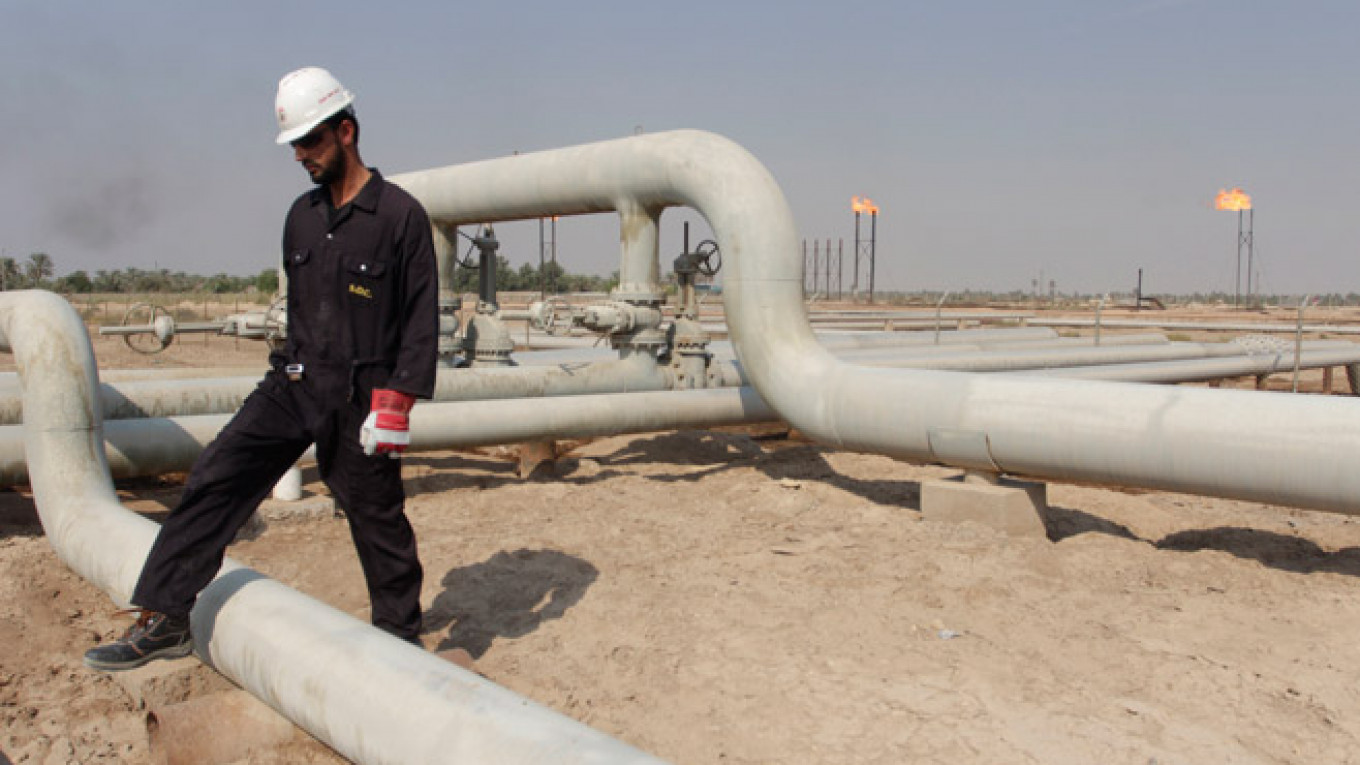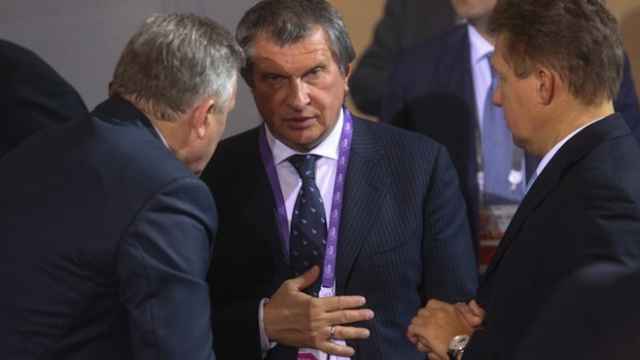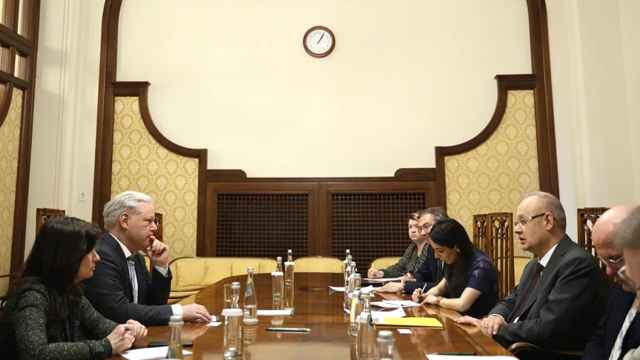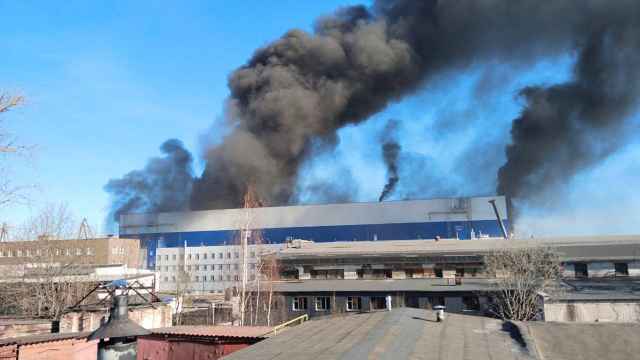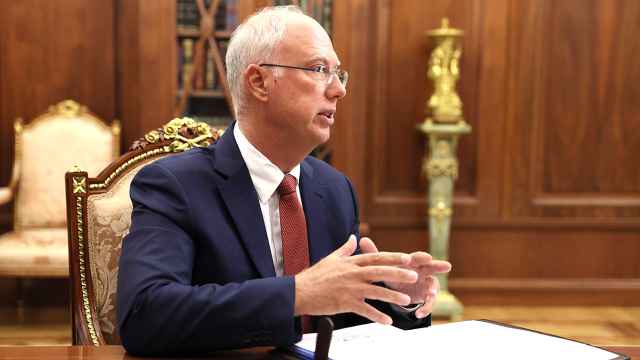VIENNA — Talks between Saudi Arabia, fellow OPEC member Venezuela and oil powers Russia and Mexico failed to find an agreement to address a growing oil glut on Tuesday, with no side saying they would lower output despite a collapse in prices.
Oil prices turned lower after the meeting, with international benchmark Brent falling more than $1 a barrel to near $78.
The oil price tumble has battered Russia’s ruble currency, which has fallen over 25 percent against the U.S. dollar this year.
In a day of shuttle diplomacy ahead of OPEC's crucial output meeting in Vienna on Thursday, Russian and Mexican energy officials rushed to the Austrian capital to push OPEC kingpin Saudi Arabia on the 30 percent price fall since June.
Saudi has kept the market guessing about its response to crude's fall, but the meeting on Tuesday led to speculation and hopes in some quarters that Riyadh was considering backing a coordinated cut. Those hopes did not last long.
Venezuelan Foreign Minister Rafael Ramirez told reporters after the meeting that while all sides agreed current prices were "not good" for producing countries, no output cuts could be arranged — or guaranteed at Thursday's OPEC meeting.
"We discussed the situation in the market, we shared our points of view, we need to keep in contact and we agreed to meet again in three months," Ramirez, who until recently was oil minister and president of state oil company PDVSA, said.
Venezuela, a noted price hawk, would try for an output agreement within OPEC instead, he said.
Igor Sechin, the head of Russian state oil company Rosneft and a close ally of President Vladimir Putin, arrived in Vienna on Tuesday amid hints that Moscow could cut output or exports if the producer group did the same. Russian Energy Minister Alexander Novak also attended the four-country meeting.
Mexican Energy Minister Pedro Joaquin Coldwell left the meeting before the other participants, without giving a statement.
A Message from The Moscow Times:
Dear readers,
We are facing unprecedented challenges. Russia's Prosecutor General's Office has designated The Moscow Times as an "undesirable" organization, criminalizing our work and putting our staff at risk of prosecution. This follows our earlier unjust labeling as a "foreign agent."
These actions are direct attempts to silence independent journalism in Russia. The authorities claim our work "discredits the decisions of the Russian leadership." We see things differently: we strive to provide accurate, unbiased reporting on Russia.
We, the journalists of The Moscow Times, refuse to be silenced. But to continue our work, we need your help.
Your support, no matter how small, makes a world of difference. If you can, please support us monthly starting from just $2. It's quick to set up, and every contribution makes a significant impact.
By supporting The Moscow Times, you're defending open, independent journalism in the face of repression. Thank you for standing with us.
Remind me later.


